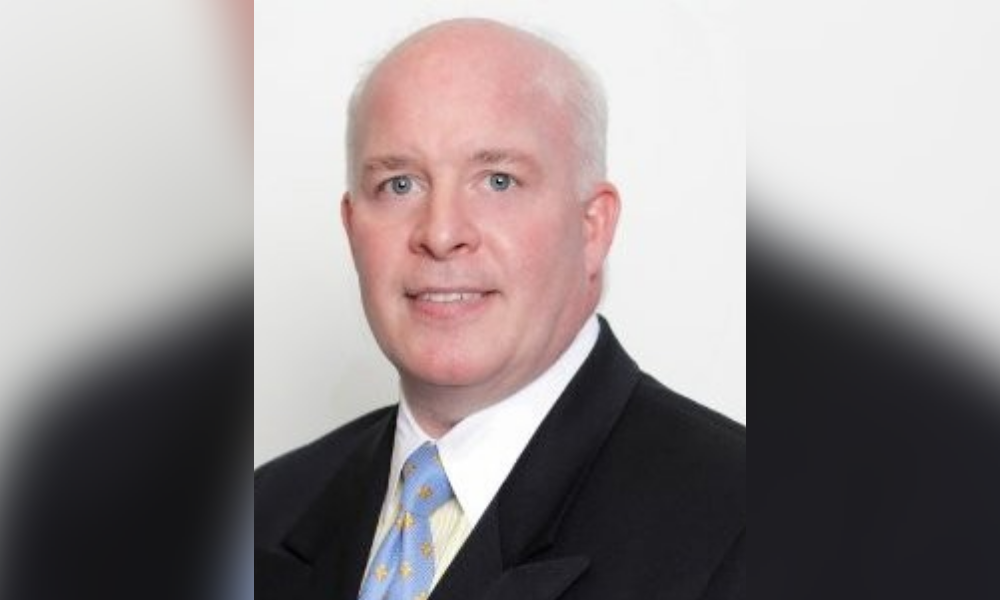New American Fundings' key industry influencer on how to address the affordability crisis

According to recent data, home affordability in the US has dropped to its lowest level in 13 years, with a median household now needing roughly 32% more income to cover mortgage payments compared to 2008.
To cap it all, home appreciation reached a record high this year, with the median price of an existing home rising to $356,700 in August – a 14.9% increase compared to the same 2020 period, according to the National Association of Realtors.
One person acutely aware of the problem of affordability is Mark Tribuna (pictured), New American Funding's new regional business development manager for Arizona, and Central and Northern California.
Hired only last month, it will be his job to lead the company’s large network of loan originators as they work closely to serve the lending needs of non-profit affordable homebuilders.
Tribuna will hit the ground running, having spent the last six years or so trying to find practical solutions to the problem of affordability.
Read more: “The majority are still lagging behind men”
Back in 2016, he had “the good fortune” of being introduced to the Habitat for Humanity nonprofit organization, a chance encounter that changed his outlook on the mortgage industry.
“My eyes opened to the plight of the lower income borrower, and how access to financing was very difficult, as it's really an underserved population,” he told MPA.
During his time as a consultant for the organization, trying to create programs to help up to 1,200 nonprofit home builders across the country, it became clear to him that there was a “very obvious disconnect” between the general lending community and its attitude towards affordable lending.
“One of the biggest barriers to homeownership is having the down payment so that you can obtain financing,” he said.
In February 2020, he became a senior advisor for CBC mortgage agency, the government housing financing authority that signed a partnership last month with New American Funding (NAF) with the aim of expanding the Chenoa Fund Down Payment Assistance program.
“NAF is a fantastic company. I've only been there for a short time, but I've known (co-founder and president) Patty (Arvielo) and CEO Rick for a long time.
“We talked about how we could work together to help increase the lending in the affordable housing arena for many years, and finally we were able to come and put together this plan, which included the partnership.”
Through the program, which provides eligible customers with a 3.5% down payment, the agency is able to offer up to 100% financing by giving a traditional first mortgage, normally through an FHA loan.
“It allows many homeowners to breakdown that barrier to entry, due to not having down-payment money, and it gets them into their initial home,” Tribuna explained, pointing out with no small amount of pride that they had recently funded the 30,000th loan.
But making loans more readily accessible for the low paid is only one piece of the housing puzzle, he agreed. “I think (the key) is adding more inventory, and that's part of our entire program.”
He said the partnership was working hard to ensure nonprofit homebuilders had more liquidity to build more homes, but he recognized it will require a Herculean effort to get everyone on board, given current real estate prices, as well as the rising cost of labor and home building supplies.
“If you're a home builder and you can build a $500,000 home you can make a 10% or 20% profit margin, so why would you focus on building a $150,000 home where the profit margin is much lower? There's not a focus on incentivizing homebuilders to construct in this segment,” he stressed.
Loan originators face a similar conundrum with commissions, which is why Tribuna believes there is an urgent need to have incentives on the lending side as well.
Read more: New American Funding doubles down on national expansion
But Tribuna believes he will get all the backing he needs at NAF, a company that has long trumpeted its support for accessible and affordable homeownership.
“It's probably one of the most professional organizations I've been involved with, and they’ve been very supportive to the salesforce,” he added.
It’s apparent NAF feels the same way about him. When he was hired, the company described him as a “key industry influencer”, a ringing endorsement he was keen to downplay with a sheepish chuckle.
But with 30 years’ experience in the mortgage industry under his belt, the plaudits may well be justified. At one time he owned a mortgage bank, which he set up with his own savings. At its height, the operation was generating roughly half a billion dollars annually in originations across 23 states.
After its collapse in the 2008 financial crisis, Tribuna moved around, holding senior level positions for a number of independent mortgage banks.
“That's sort of where my expertise developed over time. What I enjoy best is helping to improve efficiencies, identify opportunity, and then at the end of the day, increase net profitability,” he said.
They say you can’t buy experience, but with experience comes wisdom, something Tribuna is well aware of.
“It's not always about the dollars and cents. There's a real feel-good aspect to the business when you can help a first-time homebuyer achieve homeownership.
“There's a balance to lending, and that means that you want to lend to as many borrowers as possible, but don't lose focus on those that are in most need – they are sometimes the most overlooked.”



